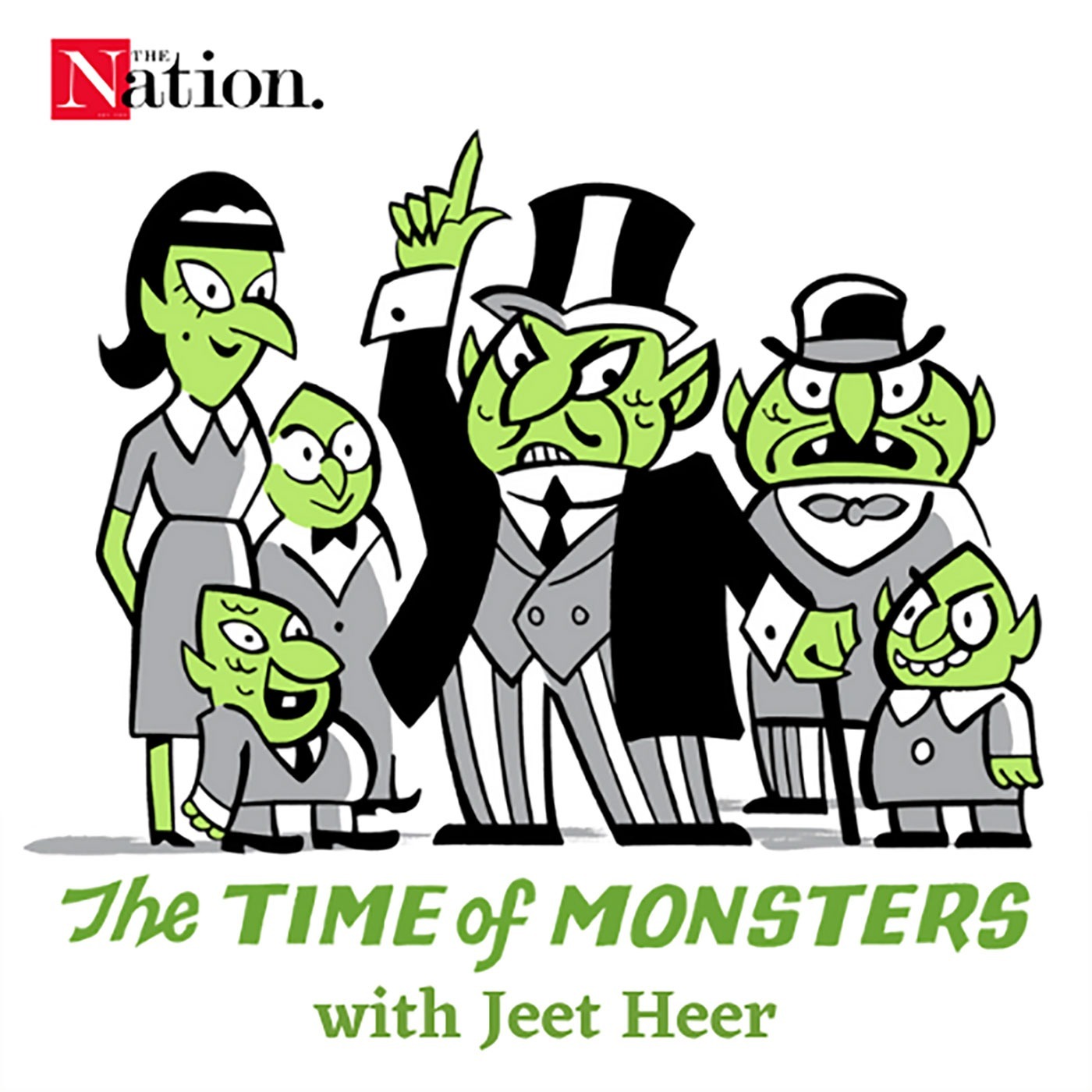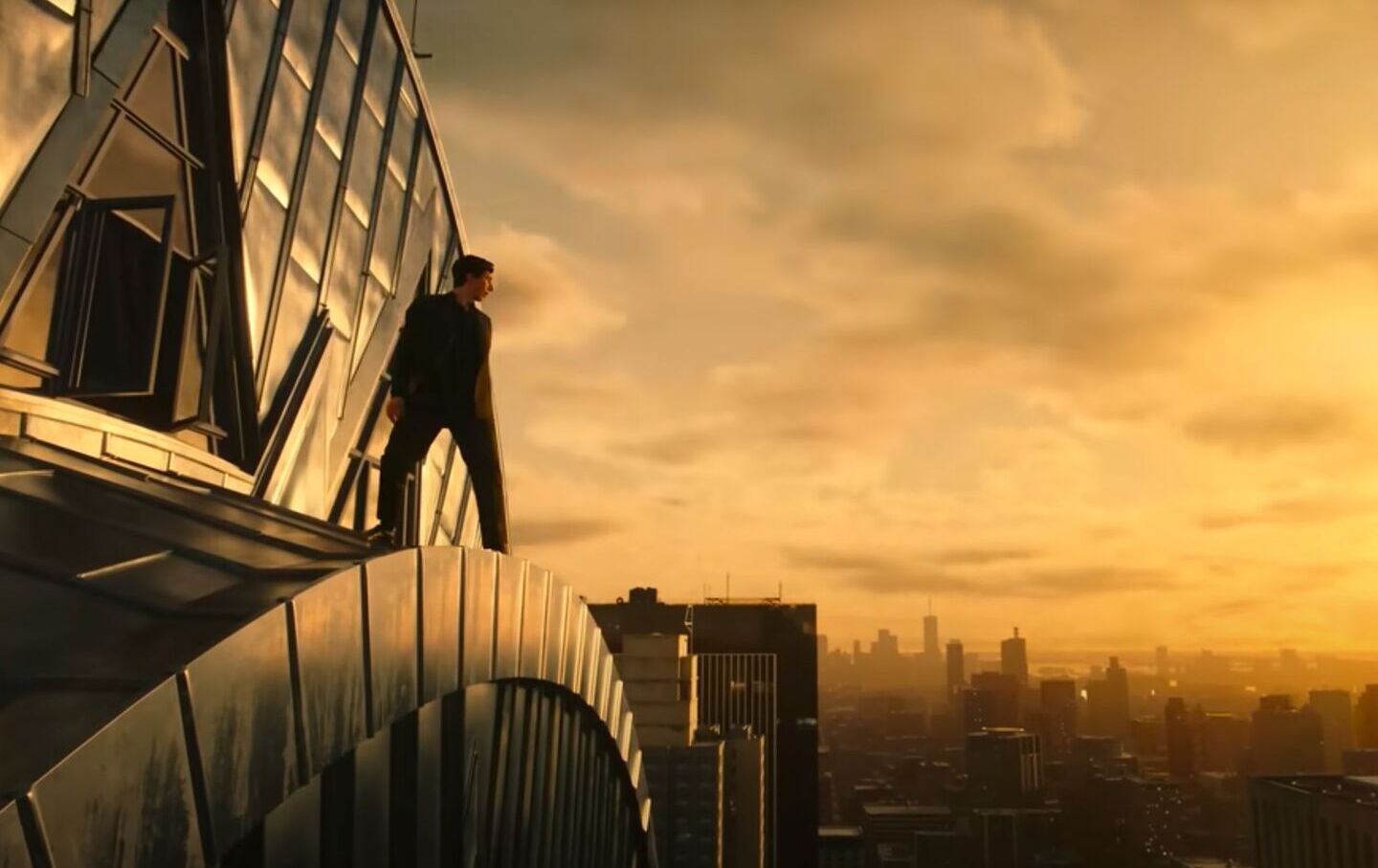Francis Ford Coppola’s Contentious Utopia
On this episode of The Time of Monsters, Kate Wagner on the polarizing politics of Megalopolis.

The Time of Monsters podcast features Nation national-affairs correspondent Jeet Heer’s signature blend of political culture and cultural politics. Each week, he’ll host in-depth conversations with urgent voices on the most pressing issues of our time.
More than forty years in the making, Francis Ford Coppola’s Megalopolis is the most divisive movie of our time. Some critics have hailed it as a major work while others dismiss it as a stinker. The film tells the story of Cesar Catilina (played by Adam Driver), a visionary architect who fights for his utopian urban plans against the entrenched forces of the status quo. Whether you like the movie or not, the uncontestable fact is it is rich in ideas and offers much to talk about.
To talk about the movie I spoke with The Nation’s architectural critic Kate Wagner. We discuss the movie’s relationship to early 20th century modernism as well as earlier movies such as Metropolis and the fiction of Ayn Rand. A major topic of conversation is the film’s reactionary gender politics.
Advertising Inquiries: https://redcircle.com/brands
Privacy & Opt-Out: https://redcircle.com/privacy

More than forty years in the making, Francis Ford Coppola’s Megalopolis is the most divisive movie of our time. Some critics have hailed it as a major work while others dismiss it as a stinker. The film tells the story of Cesar Catilina (played by Adam Driver), a visionary architect who fights for his utopian urban plans against the entrenched forces of the status quo. Whether you like the movie or not, the uncontestable fact is it is rich in ideas and offers much to talk about.
To talk about the movie I spoke with The Nation’s architectural critic Kate Wagner. We discuss the movie’s relationship to early 20th century modernism as well as earlier movies such as Metropolis and the fiction of Ayn Rand. A major topic of conversation is the film’s reactionary gender politics.

The Time of Monsters podcast features Nation national-affairs correspondent Jeet Heer’s signature blend of political culture and cultural politics. Each week, he’ll host in-depth conversations with urgent voices on the most pressing issues of our time.
Matthew Yglesias, a very influential journalist and proprietor of the Slow Boring substack, has emerged as a divisive figure within the Democratic party. To admirers, he’s a compelling advocate of popularism, the view the Democratic party needing to moderate its message to win over undecided voters. To critics, he’s a glib attention seeker who has achieved prominence by coming up with clever ways to justify the status quo.
For this episode of the podcast, I talked to David Klion, frequent guest of the show and Nation contributor, about Yglesias, the centrist view of the 2024 election, the role of progressives and leftists in the Democratic party coalition, and the class formation of technocratic pundits, among other connected matters.
Advertising Inquiries: https://redcircle.com/brands
Privacy & Opt-Out: https://redcircle.com/privacy
